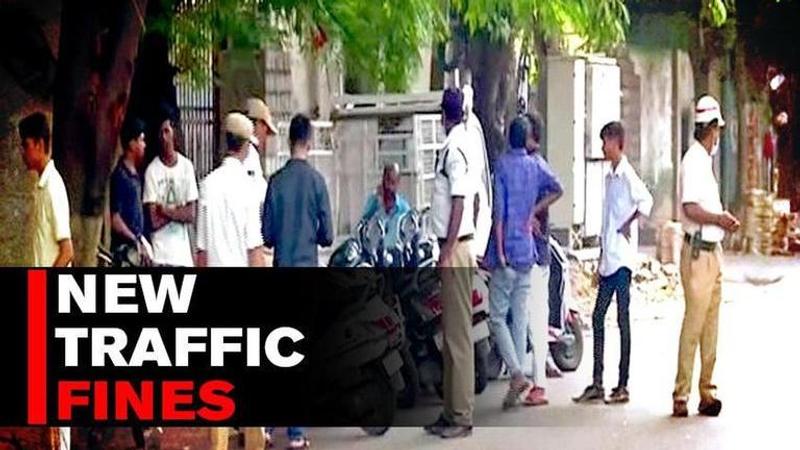Published 20:31 IST, September 4th 2019
New traffic fines stir debate: Here's how violations are viewed abroad
The New Motor Vehicles Amendment Bill was implemented on September 1, stirring a flurry of responses, both in favour of the Act, and those who oppose it

After news of a traffic violation in Gurugram which led to a rider being fined ₹23,000 for riding without papers went viral, an auto driver from Bhubaneswar found himself in a similar situation, on Wednesday, September 4. The unnamed man was fined ₹47,500 by the Transport Department for multiple traffic violations including drunk driving. This comes after the New Motor Vehicles Amendment Act approved by President Ram Nath Kovind came into effect from Sunday, September 1.
The Bill set off a debate across the nation, and has been met with a slew of criticism from the Opposition. Some leaders have responded to it saying, it's unfeasible to implement, citing differences over the amount of penalty. Notably, the new Bill, which seeks to weed out corruption and lower traffic violations in the country, replaced 30-year old laws. The Bill aims to mend India's transportation laws, keeping in mind crucial issues such as road safety, reducing deaths caused by accidents, and impose stricter penalties on violation of rules.
India's new Motor Vehicle Amendment Act stirs debate; here's how the rest of the world views traffic violations
While the new Bill has received mixed responses, it would add perspective to look at some of the laws implemented in other countries:
Sweden has some of the safest roads in the world and is widely touted to have implemented a holistic approach to road safety. Adopting a 'Vision Zero' policy, the country instead of focusing on altering human behaviour, lays importance in building a better system of roads and infrastructure. Today, the country is famous for its low-speed zones, dedicated pedestrian sections, and three-lane roads to prevent overspeeding, and most importantly high fines for violating any of the above laws.
Canada on the other hand, known for long stretches of empty highways often makes motorists cough up hefty fines of up to $25,000. Finland has a rather unique solution, the government charges violators based on their annual income. There have been instances where people have had to pay as much as $200,000. Norway, Iceland, the UK, Australia, and Israel are all some examples of countries that have some of the safest roads in the world, and they have achieved this by incorporating expensive fines. In many of these cases, violations may be as simple as overspeeding or using mobile phones while driving. The logic, however, is the same for all these countries. An increase in penalty rates will quickly lead to better road discipline.
According to a report released by the Government in 2017, nearly 1.5 lakh people lose their lives in road accidents in India every year. Putting things in perspective, that is about 17 deaths, every hour. Negligence, as we are all aware, is the number one killer on our roads. It is a display of recklessness and endangers the lives of all others on the road. In a move to curb deaths caused by road accidents and to improve safety measures, Minister of Road Transport and Highways, Nitin Gadkari, proposed the Bill with several key clauses which were updated after a period of 30 years. The Bill was passed in both the Houses of Parliament by July 31, 2019.
This newly implemented Bill will usher in the use of technology to regulate traffic, weed out corruption and provide a better user experience. With road safety increasingly becoming a priority, the question remains - will the hefty fines serve their purpose as a deterrent and lead to fewer violations, or will they be misused against the very citizens they aim to protect?
Updated 23:36 IST, September 4th 2019




